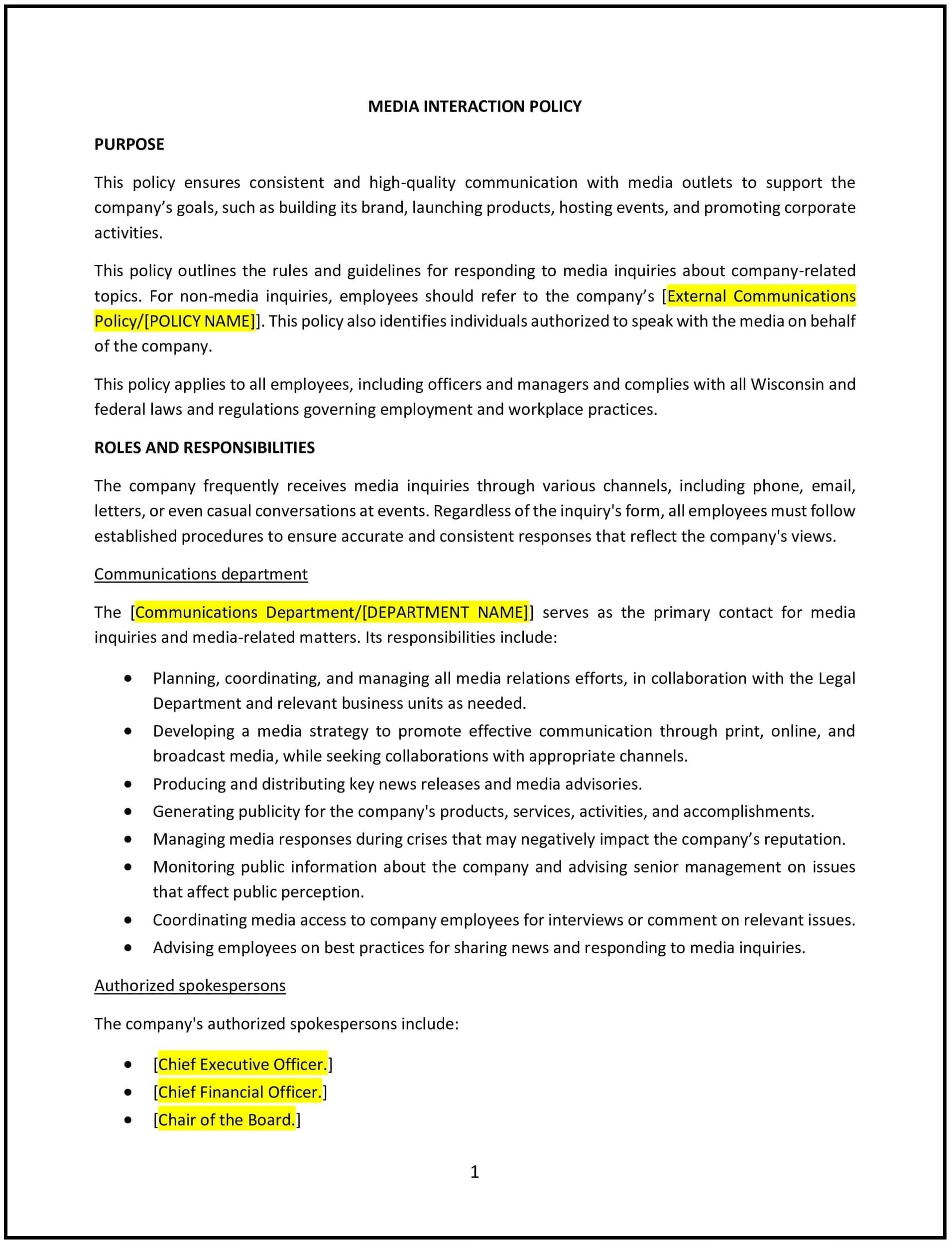Got contracts to review? While you're here for policies, let Cobrief make contract review effortless—start your free review now.

Customize this template for free
Media relations policy (Wisconsin)
A media relations policy helps Wisconsin businesses manage interactions with the media, ensuring consistent, accurate, and positive communication while protecting the company’s reputation. This policy outlines procedures for responding to media inquiries, spokesperson selection, and handling sensitive information, in order to best ensure that all communication aligns with business goals and legal requirements.
By implementing this policy, businesses can promote clear messaging, reduce risks of misinformation, and maintain control over their public image.
How to use this media relations policy (Wisconsin)
- Define spokespersons: Identify who within the company is authorized to speak to the media, such as the CEO, communications director, or PR team members.
- Establish communication guidelines: Provide clear instructions on how to respond to media inquiries, including directing inquiries to the appropriate spokesperson and avoiding unauthorized public comments.
- Address sensitive information: Specify how to handle confidential or proprietary information, and when it is appropriate to release information to the public.
- Outline approval procedures: Detail the process for reviewing and approving statements, press releases, or interviews before they are shared with the media.
- Promote consistency: Ensure all communication with the media aligns with company values, goals, and messaging, maintaining a consistent voice.
- Monitor media coverage: Encourage monitoring of media coverage to address potential inaccuracies or negative reporting swiftly.
Benefits of using this media relations policy (Wisconsin)
This policy offers several benefits for Wisconsin businesses:
- Protects the company’s reputation: Establishes clear protocols to prevent unauthorized or damaging statements and promotes a positive public image.
- Ensures consistency: Provides a unified approach to communication, reducing the risk of conflicting messages.
- Promotes accuracy: Ensures that media interactions are accurate and consistent with the company’s goals and messaging.
- Reduces legal risks: Aligns media communication with legal requirements, such as confidentiality agreements and industry regulations.
- Enhances crisis management: Provides a structured response to negative or crisis situations, enabling quick, consistent communication.
Tips for using this media relations policy (Wisconsin)
- Communicate the policy clearly: Ensure all employees are aware of the media relations policy and know who to contact in case of media inquiries.
- Provide media training: Offer training for authorized spokespersons to ensure they handle media interactions effectively and consistently.
- Monitor media coverage: Regularly review media coverage of the company to address any misinformation or negative press quickly.
- Stay proactive: Develop press releases and media kits in advance for key events or product launches to ensure timely, well-crafted communication.
- Update regularly: Revise the policy to reflect changes in Wisconsin laws, company practices, or media landscape.